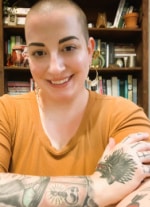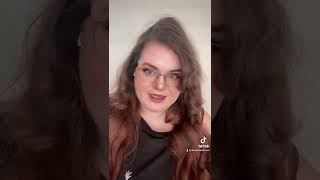Editor’s note: Texan Ann Kellett (annkellettediting.com) has been a full-time, award-winning editor for more than thirty years. The business cards she ordered for her new focus on developmental editing—with the tagline “I slog through your book’s substance and structure so your readers will soar”—should arrive any day now.
The client sat up as straight as she could and leaned forward, eyes bright with tears behind the silver frames of her glasses.
“I’m so glad we could have this little talk,” she said as she tucked a strand of white hair behind her ear.
I remembered how her stepson had warned me: “She’s from the Old Country. If she can’t get what she wants by yelling and waving her arms, she turns on the tears. Don’t let her get to you.”
Here it comes, I thought.
She lived halfway across the country and we had communicated by phone and email, but had reached the point where we needed the immediate, emotional connection only found when face-to-face. That morning, we were on Skype.
“It’s good to finally meet you,” I said, but all I felt was regret as I ran through a mental checklist of what might come next.
Bad News, or Good?
She had hired me to copyedit her memoir about her childhood in the former Soviet Union during World War II. While her story was riveting, her writing was full of amateurish mistakes. It needed more than a pass-through for spelling, grammar, and punctuation.
It needed an overhaul.
The issues were significant, but the solutions were so obvious to me that I didn’t mention an additional cost. I had some time before my next project, and (although I didn’t tell her) I’ve always had a soft spot for little old ladies. She agreed to let me dive in, and here we were, a few weeks later.
Had my tactic backfired? Had I wasted my time with all that restructuring and revising, and hers, with all of my questions?
Show, Don’t Tell—And Other Life Lessons
She took off her glasses and placed them next to the manuscript in front of her, which was about a third shorter than the original draft. A paper clip was attached to one of the pages.
She wiped her eyes and leaned closer to the camera.
“I see what you mean . . . about everything!” she said. “This is where I first understood.”
With trembling fingers, she held up the page that had the paper clip and read aloud:
Marina and I huddled on the bed we shared, peeking over the pillows.
“I thought it was just Olga from down the hall,” Marina whispered, her voice breaking. “Honest.”
“Hush!” I said. “We can’t let him know we’re here.”
When we heard the knock at the front door, our father was in the bathroom with the door locked, bellowing out patriotic songs like he always did when getting drunk.
It was still light outside and he had very little vodka left, and he had not spoken to us all day.
When Marina cracked the front door open, a man pushed his way inside. He didn’t seem to notice us as he headed toward the sound of our father’s singing. We scurried into the bedroom.
The man pounded on the bathroom door. “We know where you live, Anatoly. And time’s almost up. Dmitri is not a patient man. Just remember that.”
The man left so quickly that we could almost imagine he had never been there, except that our father had stopped singing. The front door was open and the scent of onions frying in a nearby kitchen filled our flat. We longed to have our mother back home and meet our new baby brother.
Just as the sky finally darkened, Father came out of the bathroom, smoking a cigarette. He stuck his head out the front door and looked both ways down the hall, then gently closed and locked the door.
He inhaled deeply from his cigarette and let it dangle between his lips. He turned his head and seemed surprised that we were there. “Don’t either of you little brats breathe a word of this to your mother,” he growled as ashes floated to the floor.
Hiding No More
She looked at the page as if it held the secrets of the universe.
“It’s just like you explained,” she said. “Show, don’t tell. Don’t say that Marina and I were terrified; show us hiding behind the pillow. Don’t say that our father was drunk and angry and scared, show him growling at us. It makes perfect sense now.
“And it made me realize something. My whole life, I have been hiding, just peeking out at life and telling, telling, telling. Thinking of my life as just one thing after another, without any structure or focus.
“But no more. Now I realize that my story matters. Marina and the others are long gone, but I am still here to tell it.”
And at that moment, I resolved to think of myself as not just as an editor, but primarily as a developmental editor. I’ll still tackle the occasional doctoral dissertation or journal article, but my heart is in book-length work that carries the lifeblood of the author’s world, whether real-life or imaginary. It’s messy and tedious, but nothing else compares to the thrill of leading someone to believe that their story matters.
I hope I someday have the chance to let this writer’s stepson know that this woman did get to me, and that he should read her memoir. If he does, he might just meet her for the very first time.



